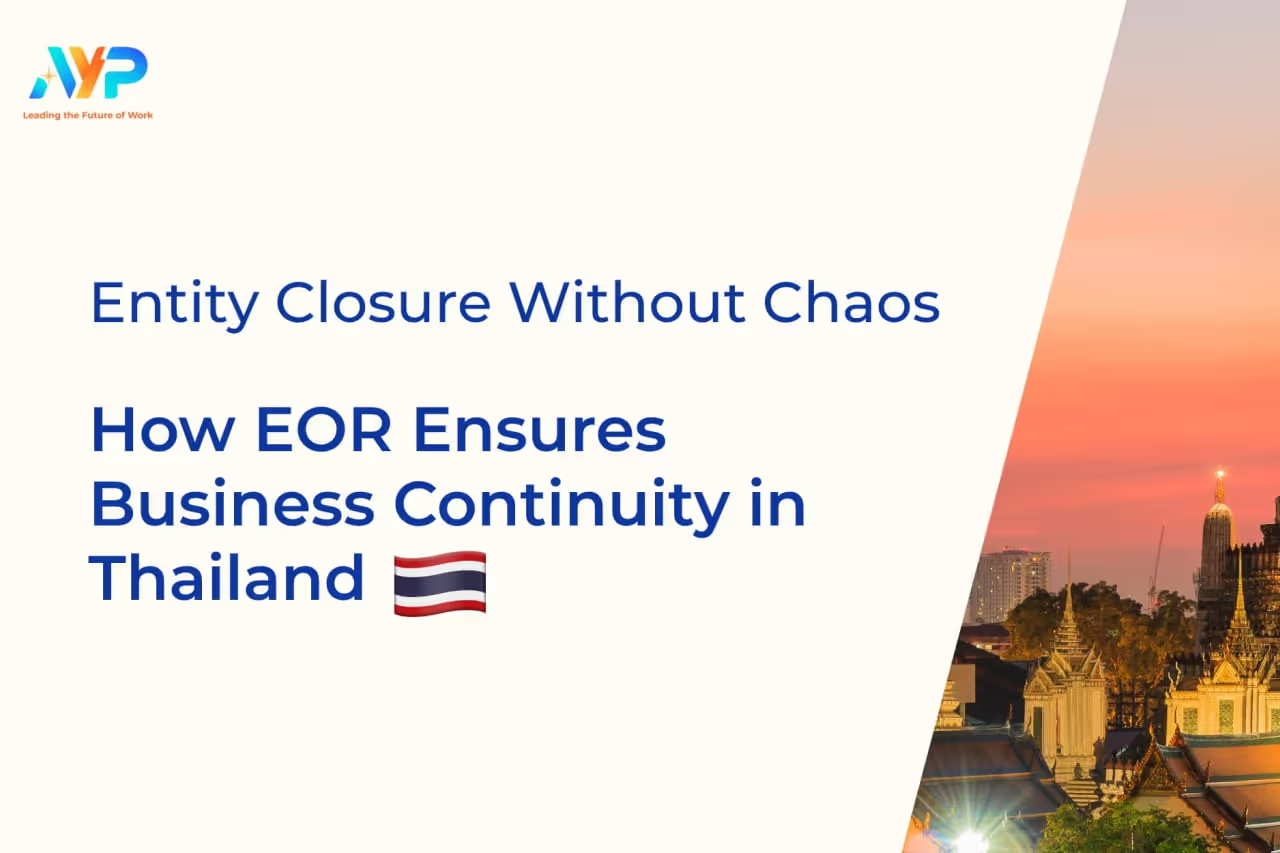BLOG |
Employer of Record & PEO
Published:
September 2, 2025
Last updated:
September 1, 2025


Winding down a business in Thailand is never simple. Between lengthy regulatory procedures and strict labor laws, companies often struggle to exit cleanly—especially when it comes to employee termination and preserving key talent.
But closure doesn't have to mean disruption. With professional employment services, businesses can retain talent after closing down and continue operations without a legal entity on the ground.
Here's how it works—and why these services are becoming a strategic exit tool for companies in Thailand.
Closing a Thai company involves more than just stopping operations. According to Thailand's Department of Business Development (DBD), a legal dissolution requires:
Depending on the structure and complexity of your business, the full process can take several months (DBD Thailand).
Beyond the administrative work of shutting down a company, terminating staff in Thailand requires close adherence to the Labour Protection Act B.E. 2541 (1998).
Here's what you're obligated to do:
(Sections 118-122) | Thailand Law Library)
Failure to comply with these provisions may result in legal disputes or claims for unfair dismissal, even if severance is paid.
For many companies, the greatest risk during entity closure isn't regulatory—it's losing talent. Letting go of trained, experienced staff means losing institutional knowledge, customer relationships, and momentum.
For global companies with regional projects, this can result in missed deadlines, revenue loss, and higher costs when re-entering the market in the future.
This is where professional employment services become a strategic asset.
A professional employment provider legally employs your staff on your behalf, ensuring full compliance with Thai labor laws. While your Thai entity is closed, your employees continue working—just under the provider's legal structure.
Here's how it works:
This allows you to retain talent after closing down and keep your Thailand operations running without legal or administrative risks.
Compared to other approaches, professional employment services provide a fast and flexible way to ensure continuity:
Professional employment services are often the only viable way to keep employees without a Thai legal entity—especially if your business requires local expertise or ongoing service delivery.
To successfully close your Thai entity while protecting your workforce, consider the following:
Closing a Thai entity doesn't have to mean shutting down your business.
With a compliant professional employment arrangement, you can:
For businesses exiting Thailand but looking to preserve their team and operations, professional employment services aren't just an option — they're a strategic advantage. Speak with us today to find out how you can retain your talent in Thailand.